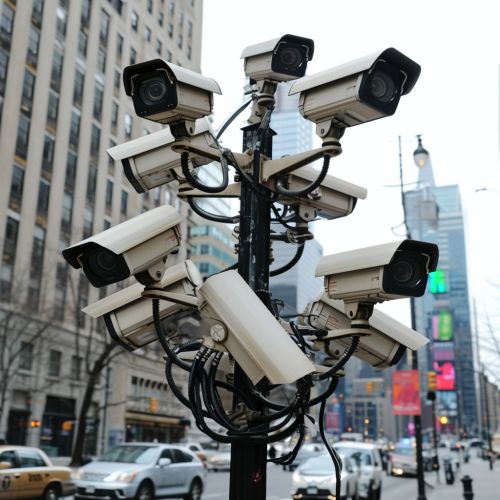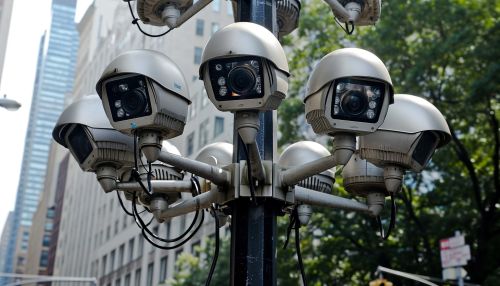Surveillance Society
Introduction
Surveillance society is a term used to describe a society that is characterized by pervasive surveillance, often justified by the need for national security and the protection of individuals. This society is marked by the extensive collection and processing of personal data, often without the knowledge or consent of the individuals involved. The concept of a surveillance society raises significant questions about privacy, civil liberties, and the balance between security and freedom.
Historical Context
The concept of a surveillance society has its roots in the works of social theorists such as Michel Foucault and Jeremy Bentham. Bentham's design for a panopticon prison, where inmates are constantly visible to a central observer, is often cited as a metaphor for the surveillance society. Foucault expanded on this concept, arguing that modern societies use surveillance as a means of social control.
Technological Advances and Surveillance
The advent of digital technology and the internet has greatly expanded the scope and capabilities of surveillance. Digital surveillance technologies, such as CCTV, biometric identification, and data mining, have made it possible to collect and analyze vast amounts of personal data. These technologies have been embraced by both government agencies and private corporations, leading to a convergence of state and corporate surveillance.


Government Surveillance
Government surveillance has increased dramatically in the post-9/11 era, with many countries expanding their surveillance capabilities in the name of national security. This has included the monitoring of phone calls and emails, the use of CCTV and biometric identification, and the collection of personal data through various forms of electronic surveillance. Critics argue that such practices infringe on civil liberties and privacy rights, while proponents argue that they are necessary for security and crime prevention.
Corporate Surveillance
In addition to government surveillance, individuals are also subject to extensive surveillance by private corporations. This often takes the form of data collection for marketing purposes, with companies tracking individuals' online behavior to target advertising and personalize services. This type of surveillance is often less visible than government surveillance, but it raises similar concerns about privacy and consent.
Implications for Privacy and Civil Liberties
The rise of the surveillance society has significant implications for privacy and civil liberties. While surveillance can potentially enhance security and efficiency, it also poses risks to individual privacy and freedom. The collection and use of personal data can lead to a loss of anonymity, and the potential for misuse or abuse of this data is a significant concern. Furthermore, the pervasive nature of surveillance can lead to a chilling effect on free speech and other civil liberties.
Future Directions
The future of the surveillance society is uncertain, but it is likely that surveillance will continue to be a prominent feature of modern life. Advances in technology, such as artificial intelligence and the Internet of Things, will likely further expand the capabilities of surveillance. At the same time, there is growing awareness and concern about the implications of surveillance for privacy and civil liberties, leading to calls for greater regulation and oversight.
